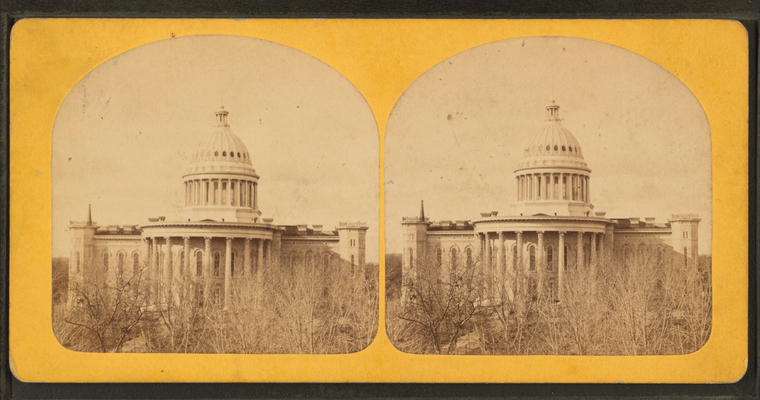Wrap-Up - Freedom of Information Day at SIBL 2011
 Many thanks to David Barstow for his presentation here at SIBL on March 16th for our celebration of Freedom of Information Day. As a kind of wrap-up for this year's event I wanted to offer, especially for those who were not able to attend, highlights of his lecture.
Many thanks to David Barstow for his presentation here at SIBL on March 16th for our celebration of Freedom of Information Day. As a kind of wrap-up for this year's event I wanted to offer, especially for those who were not able to attend, highlights of his lecture.
The premise of his presentation was to provide a working journalist's perspective on using Freedom of Information Act (FOIA) requests to obtain information from government entities, including some of the obstacles encountered. In addition, Mr. Barstow made some observations about current trends, including in the Supreme Court's support of FOIA obligations of government, and talked about hopes for future progress in this area.
The working journalist can have a love/hate relationship with the Freedom of Information Act, as is illustrated by the FOIA requests pertaining to the series of articles "Message Machine" (from which the above picture was taken), an investigation of the Pentagon's relationship with retired officers acting as military analysts for television and radio. The bad - despite carefully crafted FOIA requests, documents came in slowly and with strange redactions (such as blacking out sections of an article published in a newspaper). The good - FOIA gives standing to journalists to go to court and compel the government to comply appropriately with the request. In this case, it took 2 years to get the information, but without FOIA the task could never have been accomplished.
Recent trends: The Bush administration signaled from the begining that the government would agressively deny FOIA requests whenever possible. However, despite a campaign promising transparency in government and an end to abuses and foot-dragging, under the Obama administration use of the "deliberative process" exemption (a vague term, subject to abuse) surged during the first year and even recently still exceeded use during the Bush years. In addition, the current administration has been aggressive against "whistleblowers", as in the Wikileaks case, which sets a tone indicating they want tight control over information - something that has an impact on the handling of FOIA requests at all levels.
Information on Wikileaks has shown government's tendency to be overly secretive, raising concerns about shielding too much information. There is also an increased vulnerability to selective leaking by government, similar to the "cherry-picking" of information about Iraq that was used by the Bush administration in the runup to the Iraq war.


Good News - Two recent U.S. Supreme Court rulings:
- FCC v. AT&T - Corporations do not have “personal privacy” for the purposes of exemption from a FOIA request for documents AT&T had provided to the Federal Communications Commission Enforcement Bureau during an investigation.
- Milner v. Navy - A FOIA exemption from disclosure that pertains to "personnel" file could not be extended to requests for explosives data and maps used by the Department of the Navy in storing munitions at a naval base in Washington State.
Wish list: A court decision making clear that private contractors taking over outsourced government functions should be subject to FOIA to the same degree the government itself would be if it performed the particular activities. This would prevent the Kafkaesque shell-game of the government telling a reporter to contact the contractor and the contractor in turn telling them to go back to the government. To bring this last point home, Mr. Barstow related how the Pentagon FOIA requests were being handled by an outside contractor, and one of the generals whose actions were being investigated sat on that contractor's board of directors.
After the presentation there was a lively question and answer session covering several related topics.
If you attended, please feel free to suggest comments or amplifications to my synopsis.
Read E-Books with SimplyE
 With your library card, it's easier than ever to choose from more than 300,000 e-books on SimplyE, The New York Public Library's free e-reader app. Gain access to digital resources for all ages, including e-books, audiobooks, databases, and more.
With your library card, it's easier than ever to choose from more than 300,000 e-books on SimplyE, The New York Public Library's free e-reader app. Gain access to digital resources for all ages, including e-books, audiobooks, databases, and more.
If you don’t have an NYPL library card, New York State residents can apply for a digital card online or through SimplyE (available on the App Store or Google Play).
Need more help? Read our guide to using SimplyE.
Comments
Interesting!
Submitted by Raymond (not verified) on March 25, 2011 - 2:28pm
Great Resources
Submitted by Melanie (not verified) on March 27, 2011 - 1:29pm
FOIA
Submitted by Geraldine Nathan (not verified) on May 25, 2011 - 12:34pm